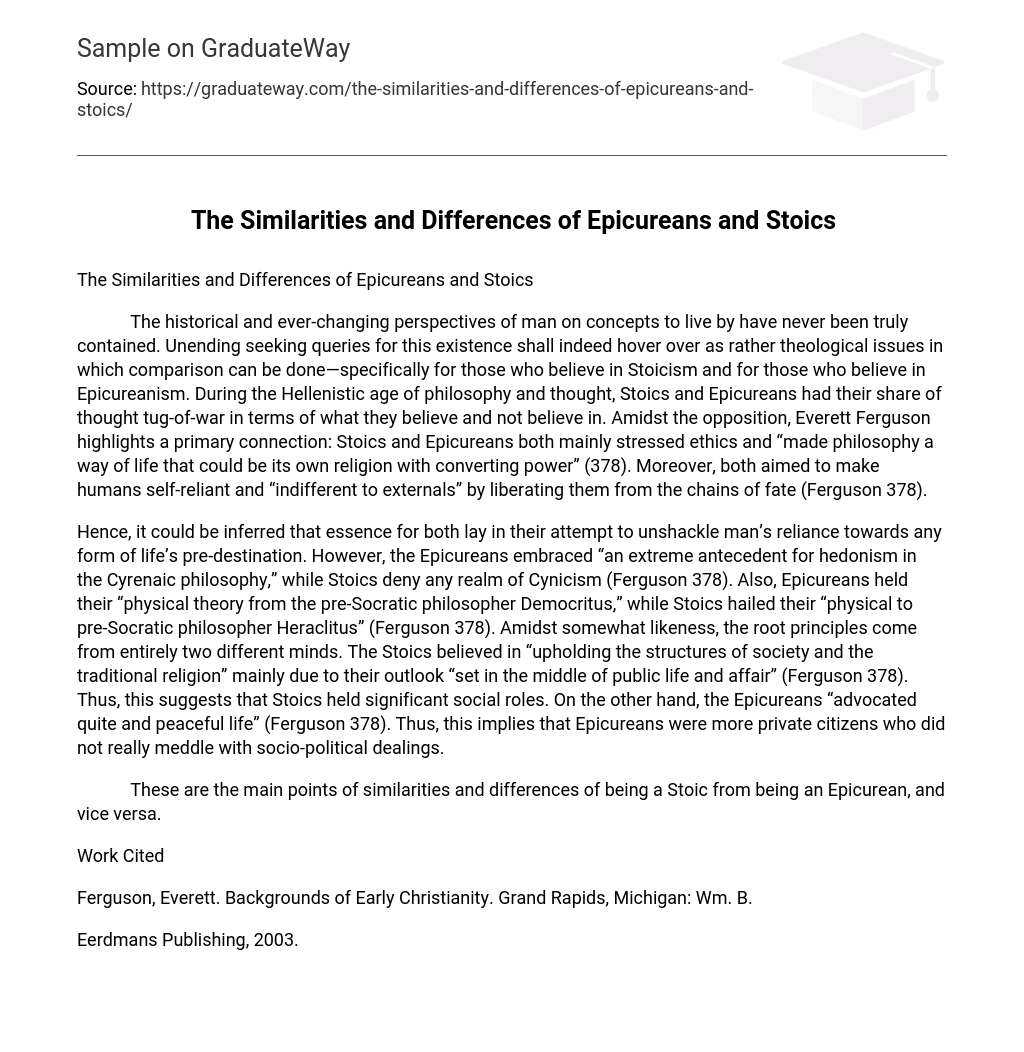The historical and ever-changing perspectives of man on concepts to live by have never been truly contained. Unending seeking queries for this existence shall indeed hover over as rather theological issues in which comparison can be done—specifically for those who believe in Stoicism and for those who believe in Epicureanism. During the Hellenistic age of philosophy and thought, Stoics and Epicureans had their share of thought tug-of-war in terms of what they believe and not believe in.
Amidst the opposition, Everett Ferguson highlights a primary connection: Stoics and Epicureans both mainly stressed ethics and “made philosophy a way of life that could be its own religion with converting power” (378). Moreover, both aimed to make humans self-reliant and “indifferent to externals” by liberating them from the chains of fate (Ferguson 378).
Hence, it could be inferred that essence for both lay in their attempt to unshackle man’s reliance towards any form of life’s pre-destination. However, the Epicureans embraced “an extreme antecedent for hedonism in the Cyrenaic philosophy,” while Stoics deny any realm of Cynicism (Ferguson 378).
Also, Epicureans held their “physical theory from the pre-Socratic philosopher Democritus,” while Stoics hailed their “physical to pre-Socratic philosopher Heraclitus” (Ferguson 378). Amidst somewhat likeness, the root principles come from entirely two different minds. The Stoics believed in “upholding the structures of society and the traditional religion” mainly due to their outlook “set in the middle of public life and affair” (Ferguson 378).
Thus, this suggests that Stoics held significant social roles. On the other hand, the Epicureans “advocated quite and peaceful life” (Ferguson 378). Thus, this implies that Epicureans were more private citizens who did not really meddle with socio-political dealings. These are the main points of similarities and differences of being a Stoic from being an Epicurean, and vice versa.
Work Cited
- Ferguson, Everett. Backgrounds of Early Christianity. Grand Rapids, Michigan: Wm. B. Eerdmans Publishing, 2003.





